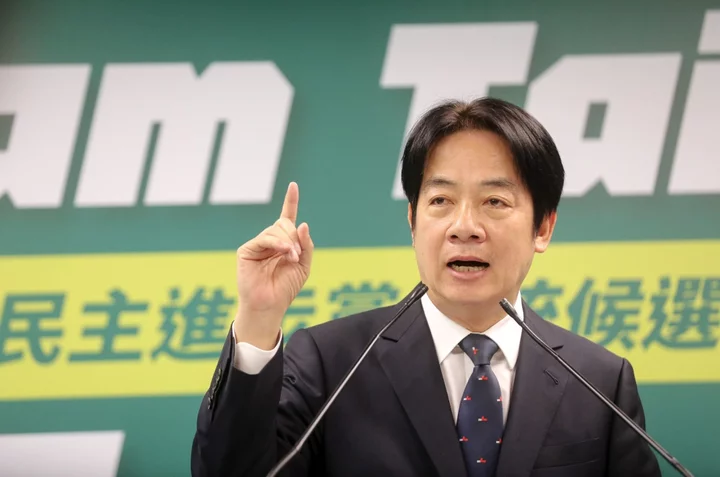The frontrunner in the race to be Taiwan’s next president says he won’t stop the world’s leading chipmaker from building more chip plants in the US or other countries if he is elected, as part of his efforts to deepen engagement and cooperation with countries around the world.
Taiwanese Vice President Lai Ching-te, the presidential candidate of the ruling Democratic Progressive Party, said he would not try to block Taiwan Semiconductor Manufacturing Co. from investing more overseas as Taiwan has a “responsibility to give back to the international community” with its advantage in chips.
“If they choose to set up operations in the U.S. or other countries, this is an expansion of Taiwan’s economic power,” said Lai during an exclusive interview with Bloomberg in Taipei last month. “I would take these developments positively.”
While the semiconductor industry consists of a shared supply chain across democracies, Lai added, TSMC’s base will remain in Taiwan as its advanced processes will stay here.
TSMC, Taiwan’s largest company, has pledged to spend tens of billions of dollars building plants in the US, Japan and Germany over the coming years, in part to assuage client concerns its manufacturing is overly concentrated on the democratically ruled island. This has led to criticism that shifting too much critical manufacturing overseas will undermine Taiwan economically or lessen US willingness to come to the island’s aid in the event of an invasion from China.
With Taiwan gearing up for crucial presidential elections in January, TSMC and other chip companies are caught between the world’s superpowers. Governments are competing to attract new chip factories to secure more control over semiconductors critical to most electronics and next-generation technologies.
Growing Apart
The US is pushing companies to limit their supply chain exposure to China and seeking to limit Chinese access to advanced chipmaking technologies, prompting many Taiwanese companies to shift their manufacturing away from China. This trend will likely lead to Taiwan and China becoming more distant from one another economically, Lai said.
He vowed to continue strengthening Taiwan’s semiconductor industries however, adding that he will also help Taiwanese businesses, including makers of servers, electronic components, and many other “hidden champions”, expand globally. He hopes to see “Taiwanese businesses become a place where the sun never sets.”

